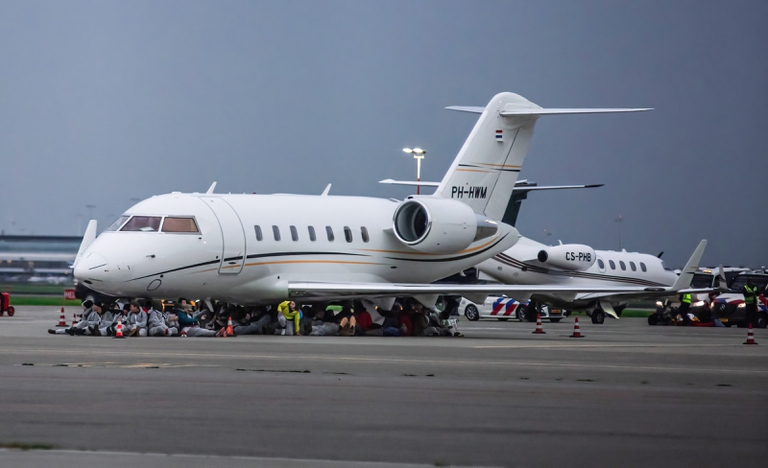https://www.lifegate.it/viaggi-in-aereo-treno
- |
- The government and the price guarantor have intervened against the increase in air travel prices.
- Traveling by train, however, remains even more expensive.
- Greenpeace proposes a climate ticket to encourage rail transport.
In recent months, air travel has become much more expensive than in the past up to 40 percent more, even though the price of fuel has fallen by 45 percent compared to the first months of the war in Ukraine.To the point that, in Italy, the price guarantor opened an investigation, asking for explanations from the main airlines operating on short routes.The government for its part, through the Minister of Business and Made in Italy Adolfo Urso, announced that "a regulatory intervention is being defined, in agreement with the Minister of Transport, aimed at combating any unfair commercial practices by carriers".From a strictly environmental point of view, the increase in air travel costs would also be good news:in fact, for the same route, often la is also available solution by train, a decidedly less polluting means.Yet a new report from Greenpeace Central-Eastern Europe exhibitions which, at the same time, on average i train travel in Europe they are twice as expensive as air travel, with a route costing up to 30 times more.
(in the Greenpeace tweet, a poster by the street artist Hogre)
Are you traveling by plane or train?
Greenpeace's analysis compared airline and train tickets from 112 different European routes in 9 different time periods, finding that flights are cheaper than trains in 71 percent of cases.In the 15 routes analyzed that include Italy (mostly international), the train is two and a half times more expensive than flying, placing our country in fifth place in Europe in the ranking of countries with the greatest cost difference between the two modes of transport.
An example:traveling between Rome and Vienna can cost 10 times more by train than by plane.Yet, the report explains in the chapter dedicated to Italy, “thanks to one well-functioning high-speed rail network and to some national night trains (certainly the opinion on the reliability of the Italian service is in fact far too generous, ed.), many towns are reasonably accessible by train, even from the south of the country".In addition to this “there are frequent international rail connections in Switzerland and Austria, continuing into France and Germany”.Nevertheless on 13 of the 15 routes analysed, flights were always or almost always cheaper.
Less low-cost despite subsidies
Low-cost airlines, which operate on the same routes, are often cheaper than trains thanks to very aggressive pricing strategies.And this is true despite the fact that airline ticket prices are at the highest they have been in recent years.Sometimes, then, they offer cheaper flights with stopovers than companies that operate direct flights, causing up to 10 times more greenhouse gas emissions.
Greenpeace underlines that low-cost airlines, among other things, also exploit the advantages that derive from staff working conditions reduced to the legal minimum and from the subsidies that they sometimes receive from local authorities (and when they do not receive any, they are still exempt from paying fuel taxes, which in itself is already a great form of subsidy).Instead, railways must pay energy taxes, VAT and the high rail tolls imposed in most countries.
“The aviation industry is one of the most harmful sectors for the climate and airlines can offer tickets at rock-bottom prices because they benefit from scandalous tax advantages, which push European citizens to choose the most polluting means of travel,” he explains Federico Spadini, head of the Greenpeace Italia Transport campaign. “Low-cost airlines, in particular, exploit every loophole to lower fares, but flights costing just a few euros are only possible because the environment and workers pay the bill.It's time for European governments, including the Italian one, to radically change the transport sector, encouraging trains and less polluting means of transport, and making airlines pay for the climate and social damage they produce."
The idea of climate tickets

To make rail transport more convenient than air transport, Greenpeace calls on European governments (and to the Italian one in particular with a petition) to introduce the so-called climate ticket, cheap and easy to use long-term tickets, valid on all public transport in a country or region, including trains and cross-border transport.Climate tickets could be financed, among other possibilities, by taxes on extra profits of oil companies, by phasing out environmentally harmful subsidies or by a fair tax system based on CO₂ emissions.In parallel, the other demand is to end subsidies to airlines and airports, starting with the phasing out of tax exemptions for kerosene.
